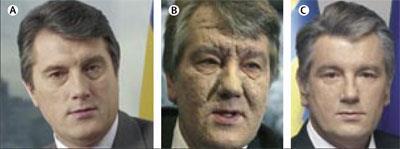Metabolism of potent TCDD dioxin was unexpected and should be the focus of further study, say researchers
Research into the non-fatal poisoning of Ukrainian president Viktor Yushchenko in 2004 has revealed the unexpected breakdown of the dioxin used to poison him, and prompted researchers to call for the development of new methods to spot the compound’s metabolites.
In what is the first published study of President Yushchenko’s apparent poisoning in 2004, toxicologists from Switzerland and the Ukraine show that - contrary to popular belief - the dioxin TCDD (2,3,7,8-tetrachlorodibenzo-p-dioxin) is able to metabolise in the human body. The discovery suggests that development of methods to assess the dioxin’s metabolites would give scientists a better understanding of TCDD poisoning and possible therapies.
’The key point is that if you just look for dioxin levels in the blood, you’re only getting one part of the story,’ lead author Jean Saurat of the Swiss Centre for Applied Human Toxicology, Geneva, told Chemistry World. ’You need also to look in the tissue for metabolites.’
The first hints that Yushchenko had been poisoned came in early September 2004 during his presidential campaign. After having dinner with senior Ukrainian security-service officials, he became seriously ill and was admitted to the Rudolfinerhaus clinic in Vienna with an acute inflammation of the pancreas. At first he appeared to recover, but three weeks later his skin quickly became aged, bloated and pockmarked.

The late British toxicologist John Henry suggested Yushchenko’s disfigurement may be a result of dioxin poisoning. This was supported by unpublished analyses, including one by Michael Zimpfer of the Rudolfinerhaus clinic which showed the presidential candidate exhibited TCDD levels in the body 1000 times above normal. Such claims came under attack, however, because they implicitly pointed the finger at a deliberate poisoning by allies of Yushchenko’s main rival, Viktor Yankovych.
TCDD is potentially lethal both because it is a carcinogen that accumulates in fat and because it has long half-life. In the past, toxicologists had assumed human enzymes were unable to metabolise it.
Now, Saurat’s group has shown that, in large doses, TCDD is in fact metabolised. In a three-year analysis during which the team monitored Yushchenko, they found that only 60 per cent of the total TCDD eliminated by his body (the amount leaving through sweat, urine, faeces and other channels) was in its original form. A search for potential breakdown products to account for the shortfall found 2,3,7-trichloro-8-hydroxydibenzo-p-dioxin and 1,3,7,8-tetrachloro-2-hydroxydibenzo-p-dioxin. This metabolism, which appeared to be brought on by Yushchenko’s high dose, saw TCDD’s normal half-life of at least five years slashed to 15.4 months.

According to Saurat, future methods to assess TCDD’s metabolites might help find the genes or proteins that are triggered by exposure, which in turn would help in understanding TCDD poisoning.
In President Yushchenko’s case, the poisoning looks almost certain to be deliberate. The researchers note that the level of TCDD in the president’s blood serum was 50,000 times higher than in the general population, yet there were no other dioxins present to signal an accidental poisoning - say, from industrial pollution. Although this verdict had already been largely accepted, the lack of supporting, peer-reviewed research meant those who gave the original diagnosis, particularly Zimpfer, were still open to accusations of scientific fraud.
Zimpfer now believes he has been finally vindicated. ’I was blamed by the press, by colleagues, for falsifying the diagnosis after I flew [Yushchenko] out [to the Ukraine] to resume his campaign,’ he said. ’I was always asking for a confirmation from the people who were treating him right now, and that’s what I finally got.’
Jon Cartwright
References
O Sorg et al, Lancet, 2009, DOI:10.1016/S0140-6736(09)60912-0






No comments yet